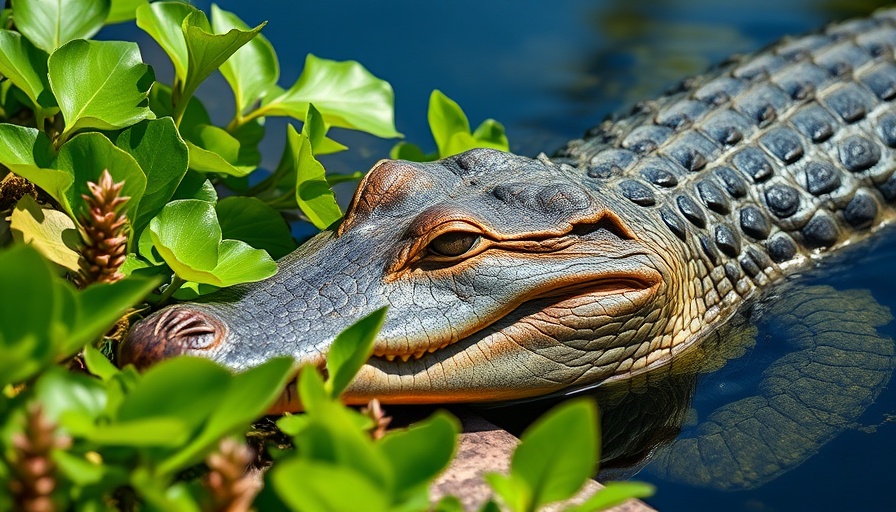
Manatees: Gentle Giants at Risk
Manatees, often referred to as the "sea cows" of the waterways, are a vital part of the aquatic ecosystem in Florida, specifically within the Indian River Lagoon. However, their future is uncertain due to factors like pollution and habitat loss. In recent years, alarm bells have been ringing about the shrinking habitats and declining food sources that are driving these magnificent creatures to the brink of extinction.
The Role of Algal Blooms in Manatee Mortality
The Indian River Lagoon is home to nearly 4,300 species, and yet the environmental health of this region is severely compromised. Algal blooms, which are exacerbated by nutrient runoff from sewage and septic tanks, have decimated the seagrass populations that manatees rely on for sustenance. In 2021 alone, Florida witnessed a record number of manatee deaths, with over 1,100 lost due to insufficient food supplies, underscoring a critical ecological crisis.
Recent Legal Decisions and Their Implications
In a recent legal update, a federal court ruled in favor of manatee protection, demanding more stringent measures from the Florida Department of Environmental Protection. This includes blocking new septic tanks and implementing a supplementary feeding program to support the remaining manatee population. Despite these proactive steps, the ongoing reinterpretation of the Endangered Species Act by the Trump administration raises concerns about the future protections for manatees and other vulnerable species.
Understanding the Broader Environmental Protection Landscape
Changes to the definition of "harm" under the Endangered Species Act could potentially redefine how species are protected. Advocates of wildlife conservation warn that these proposed alterations may lead to a surge in extinctions, jeopardizing not only manatees but also other critically endangered species that rely on healthy ecosystems. As Noah Greenwald from the Center for Biological Diversity aptly put it, the definition of harm is pivotal for the enforcement of eco-friendly legislation.
The Future of Manatee Conservation
The ongoing debate about habitat protection is not merely a localized concern; it has far-reaching implications. The potential weakening of the Endangered Species Act may set precedent for the future conservation of wildlife across the nation. The jaguar in Arizona, for instance, is a species that depends heavily on protected habitats that may be compromised by new legislation. As these discussions unfold, the need for grassroots activism and community engagement becomes ever more critical.
Your Role in Protecting Manatees
So, what can you do as a concerned citizen? Every voice counts in the fight for wildlife preservation. Engaging in local environmental initiatives, contacting lawmakers, and raising awareness about the plight of manatees can make a significant impact. Consider getting involved in community clean-up events or educational programs focused on wildlife conservation. Together, we can protect not just the gentle giants of our waters, but also the intricate ecosystems that support life.
Conclusion: A Call for Community Action
In the face of potential regulatory rollbacks, it is crucial for communities, especially those living near critical habitats like the Indian River Lagoon, to voice their concerns and support the conservation of marine ecosystems. Whether it’s through education, advocacy, or proactive measures, we all play a role in safeguarding the future of manatees and ensuring that these beloved creatures thrive for generations to come.
 Add Row
Add Row  Add
Add 




Write A Comment